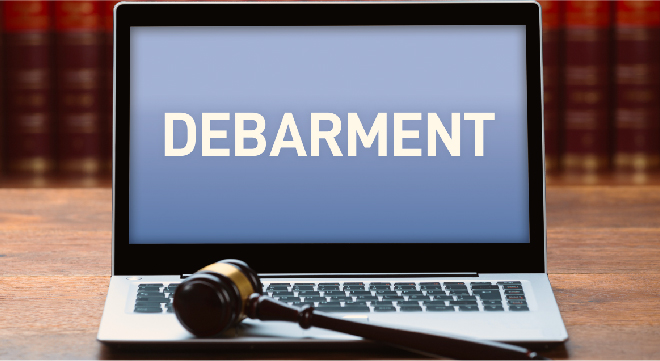The Financial Services Tribunal (FST) has set aside the second debarment of two representatives of NBC Holdings who were dismissed for allegedly participating in a “conspiracy” that resulted in the Chemical Industries National Provident Fund (CINPF) moving its administration contract to Akani Retirement Fund Administrators.
In November 2019, the trustees of the CINPF, which holds assets of about R6 billion on behalf its members, terminated the services of its long-standing administrator, NBC, and appointed Akani. This resulted in litigation between Akani and NBC.
In June last year, the Full Bench of the High Court in Johannesburg found that the decision to move the contract was linked to the payment of bribes to three CINPF trustees. Akani has filed an application to appeal against the judgment.
Read: Akani to take legal action following the FSCA’s search and seizure operation
The applicants in the case before the FST were two former senior employees of NBC who headed the team that provided support to the CINPF.
NBC instituted disciplinary action against the pair and charged them with:
- Failing to discharge their obligations and duty of care to NBC and the CINPF;
- “Conspiring and plotting” with third-party competitors and others for the purposes of ensuring that these entities could provide professional services to the CINPF;
- Failing to apprise NBC of complaints that the CINPF might have legitimately had with the company pertaining to its service; and
- Conducting themselves in a manner inconsistent with the Fit and Proper Requirements.
The applicants resigned on 29 November 2019. NBC rejected their resignations and went ahead with the disciplinary hearing. The applicants were dismissed with effect from 12 December 2019.
The applicants referred their dismissal to the Commission for Conciliation, Mediation and Arbitration. In terms of a settlement agreement, it was recorded that the parties would be deemed to have terminated the employment relationship on 29 November 2019.
Two debarments
NBC made a concerted effort to debar the applicants.
It first debarred them at the beginning of 2020, whereafter the applicants took the matter to the FST. In May of that year, the FST set aside their debarment on the grounds that it was procedurally unfair and referred the matter back to NBC.
In the same month, NBC once again sent the applicants a notice of its intention to debar them, relying on the terms of the first notice with added grounds. The second debarment, in June 2020, came before the FST in July last year. The tribunal reserved its decision pending the outcome of the litigation between NBC and Akani. (Comment: This decision seems puzzling in light of the FST’s observations below.)
Courts’ decisions are irrelevant
In the current matter, the FST made some observations about the relationship between the application before it and the litigation in the courts.
The tribunal said both the High Court and the Full Bench had made findings that, prima facie, “reflected on the honesty of the applicants”. This caused the second applicant to apply for a postponement pending the finalisation of the litigation.
The tribunal dismissed this request.
It remarked that both NBC and the applicants seemed to be “confused” about the significance of the ancillary litigation, heard initially in the High Court, then by the Full Bench and now pending before the Supreme Court of Appeal.
“The rule set out in Hollington v Hewthorn is that evidence that a party has been convicted of a criminal offence is not evidence, not even prima facie evidence, in a subsequent contested civil suit; it is the irrelevant opinion of another court. The exception recognised in Hassim […] that a criminal conviction may be used against a respondent in disciplinary proceedings does not apply,” Judge Louis Harms wrote on behalf of the FST panel.
“The striking point is that the applicants were not parties to that litigation. Their version of the events was not before those courts. They were not called upon to explain. The issues were different and between different parties. For the purposes of this matter, the decisions from both the High Court, the Full Court and the SCA are irrelevant. Any comment about the applicants by those honourable bodies is, in the circumstances, a matter of opinion based on other facts and without any application of the audi rules.”
Accordingly, the FST said its decision would be made entirely independent of any opinion in those matters and would be based on the evidence before it.
‘Pivotal concession’
The FST drew attention to the fact that, in terms of section 14(1)(b) of the FAIS Act, the reasons for debarment must have occurred and become known to the FSP while the person was a representative of the provider.
Despite “the lengthy papers and the somewhat convoluted argument raised at the hearing”, it said NBC accepted in argument that the date the FST should consider the applicants’ date of termination of employment was 29 November 2019. That, in the tribunal’s view, “was a pivotal concession” and effectively disposed of the matter.
The FST said that as of 29 November 2019, there was “nothing on the record” to indicate that NBC knew of the alleged impropriety of the applicants in order to determine that they:
- No longer met or no longer complied with the requirements of the Fit and Proper Requirements; or
- Had contravened or failed to comply with any provision of the FAIS Act in a material manner.
The tribunal upheld the application for the reconsideration of the debarments and set them aside.



